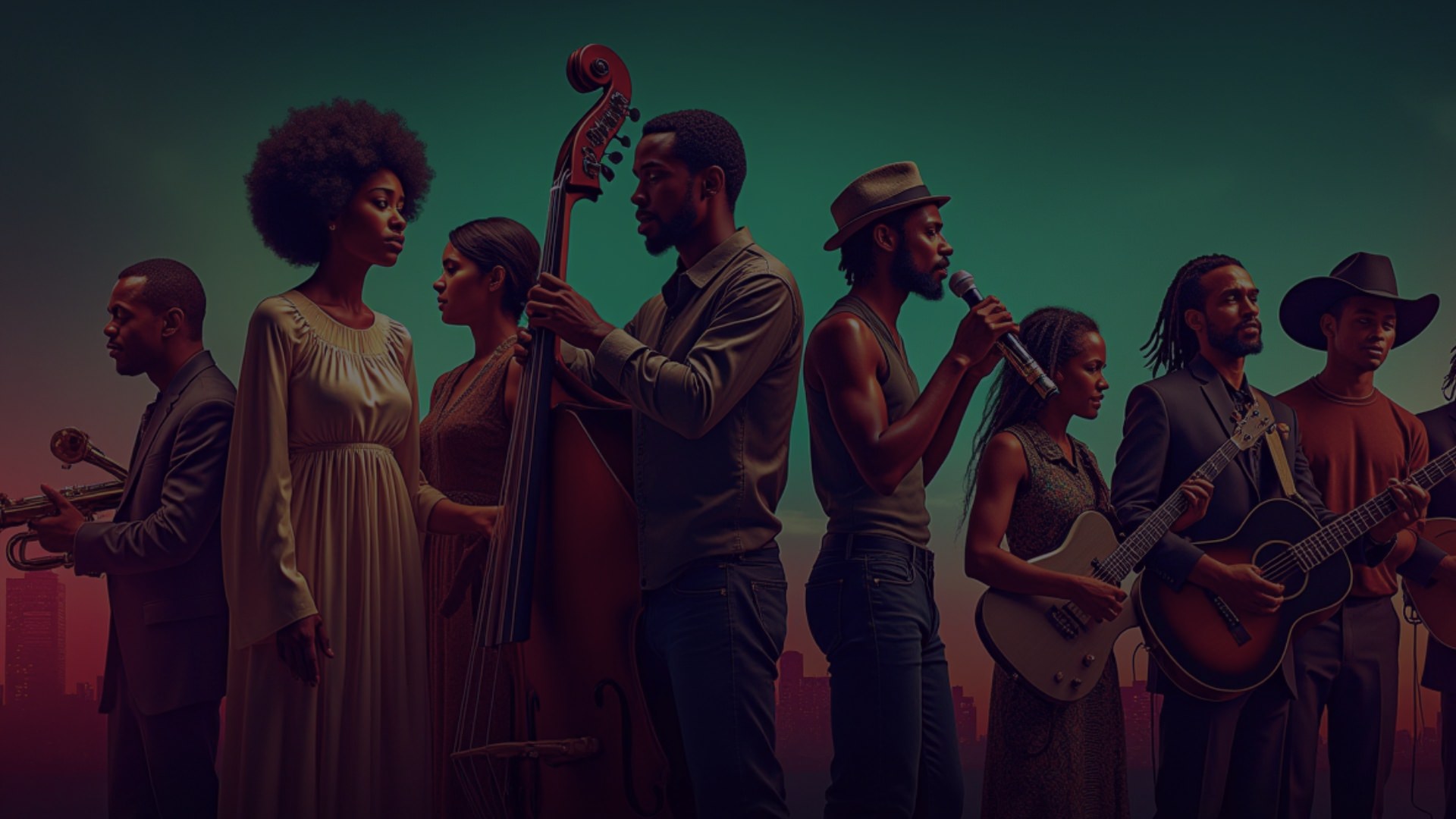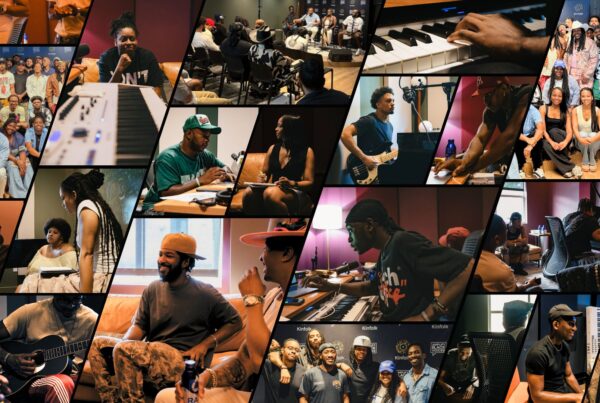Moderating a powerful conversation that traced the past, present, and future of Black music (and how its rhythm continues to shape culture) was an honor.
As part of Kinfolk’s Black History Month programming, we gathered at Warner Music Nashville for Beats That Move the World, a live conversation on the power and global impact of African American music.
It was an honor sitting with Eric Holt (Associate Professor, Belmont University & Co-Founder, The Lovenoise Group), John “JMo” Moses (VP of Creative, The Bus Music), and Dr. G. Preston Wilson, Jr. (Director, Fisk Jubilee Singers®) for an hour-long exchange on how Black music defines culture worldwide.
Panel starts at the 19:50 mark; click here to watch in a new window
Remembering the Roots
Eric set the tone by revisiting Nashville’s overlooked era as an R&B and blues hub. Before the city was branded as “Music City,” Jefferson Street and the surrounding area was alive with HBCUs, Black-owned clubs, and a creative energy that was literally bulldozed when the interstate system split the neighborhood.
Dr. Wilson connected those roots to the Fisk Jubilee Singers, whose performance for Queen Victoria helped coin the term “Music City.” He called the Negro Spiritual “the seed of American music,” the foundation for every genre that followed. His personal journey, from student to director of the same historic ensemble, brought that legacy full circle.
JMo reflected on his Oakwood University roots (“the Juilliard of the South”) and how his move into publishing and sync let him help songwriters turn creativity into sustainability, proof that the business of music can still serve the soul of it.
The Sound of Now
The panel didn’t shy away from the present. From Beyoncé’s Cowboy Carter to the Kendrick vs. Drake saga, we unpacked how art, identity, and ownership continue to intersect.
Beyoncé’s country crossover sparked a conversation about validation and visibility. Eric broke down how she intentionally bypassed Nashville’s “kiss the ring” politics, a bold move that redefined what inclusion can look like when you own your narrative. Dr. Wilson challenged us to think deeper about who decides cultural impact, questioning why Renaissance didn’t earn the same critical acknowledgment despite its reach.
When the topic turned to hip-hop “beefs,” JMo admitted he loves the competition but not the chaos. Eric reframed it as a creative tradition: a test of authenticity where artistry ultimately wins.
The Future
Each panelist saw hope ahead. JMo called for a return to real emotion in music: art that moves people more than algorithms. Eric predicted a future where Black creativity becomes fully “genre-less,” with artists like Kendrick and Beyoncé already leading the way.
Dr. Wilson ended on education, urging institutions to create space for all kinds of genius. He wondered aloud whether music schools would even accept someone like Kendrick Lamar, a Pulitzer Prize winner and one of our generation’s greatest storytellers. His point landed: the future of Black music should be expansive enough to hold every kind of brilliance.
A Reflection
Our music has always carried the stories of who we are: from the Jubilee Singers’ spirituals to hip-hop’s bold self-definition. Each era builds on the last, pushing culture forward.
That through-line is what Kinfolk stands for: creating spaces where Black culture is honored, challenged, and evolved in real time. Beats That Move the World was a mirror reflecting how far we’ve come, and a reminder that our rhythm, our innovation, and our truth continue to set the pulse for the world.





